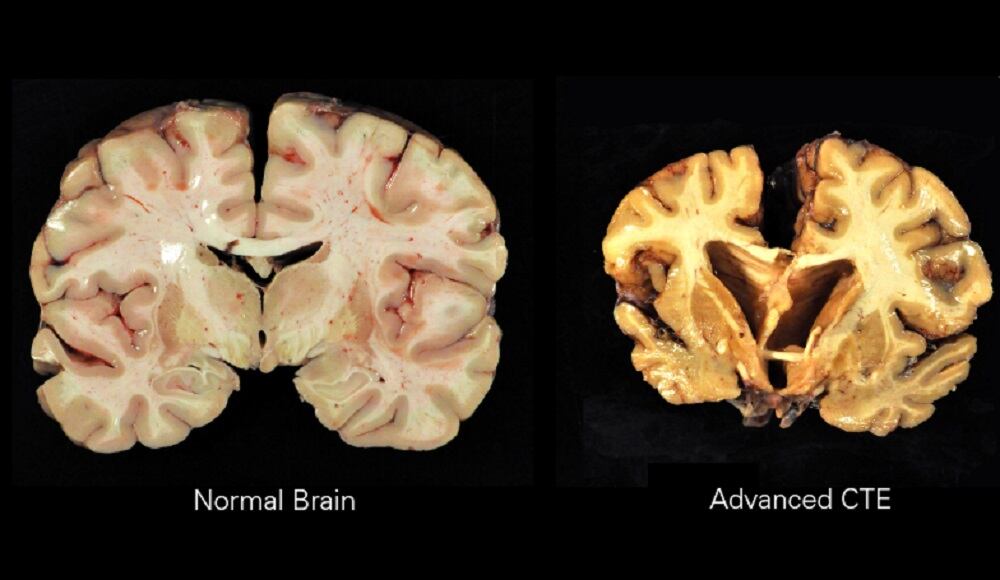The NFL drew a hailstorm of criticism for its ineffective concussion guidelines that allowed Miami Dolphins quarterback Tua Tagovailoa to return to play after withstanding a hard tackle and exhibiting concussive symptoms during a game against the Buffalo Bills on Sept. 25. Days later, Tagovailoa was slammed to the ground and suffered a concussion during a matchup with the Cincinnati Bengals.
”It’s a potentially life-threatening brain injury,” Chris Nowinski, a neuroscientist and co-founder of the Concussion Legacy Foundation said of the back-to-back injuries.
The NFL has since tightened its concussion protocols to make it harder for players to return to a game after a serious hit to the head, which mounting evidence suggests can cause long-term physical or psychological effects.
The outpouring of concern over what is an occupational hazard for NFL players is in stark contrast to a similar occupational hazard faced by U.S. service members. Indeed, there is only muted discussion in the public discourse about the brain injury dangers service members face going about their daily business either in combat or in training.
And yet, brain injuries are pervasive for the men and women in uniform. Service members can sustain what are known as mild traumatic brain injuries, or mTBIs, in many ways, “including athletics, recreational activities, physical training, falls, motor-vehicle accidents and exposure to explosive blasts,” researchers reported in the Journal of the Alzheimer’s Association.
RELATED

“Military mTBI is also random and unpredictable, ranging from a single injury to many thousands of traumatic injuries over similar time periods depending on an individual’s chance exposure to blasts and impacts,” researchers said. While mTBI is the most common traumatic brain injury affecting military personnel, “it is the most difficult to diagnose and the least well understood.”
A 2017 study published in the American Journal of Epidemiology concluded that “mild traumatic brain injury is considered one of the signature injuries of the wars in Iraq and Afghanistan, with as many as 23 percent of U.S. veterans who served in these conflicts reporting at least one mTBI during their military service.”
Mild traumatic brain injuries predominantly occur at the microscopic level, challenging medicine’s ability to diagnose them with current imaging technology. Undiagnosed traumatic brain injuries often complicate other conditions of war such as post-traumatic stress disorders, moral injuries and substance abuse. Experts characterize this complex rubric of conditions as “invisible wounds.”
Another major concern about brain injury — especially for service members and veterans — is the link to suicide. As the Department of Veterans Affairs noted in its 2020 annual report on suicide among veterans, “Veterans Health Administration patients who died by suicide are more likely to have sleep disorders, traumatic brain injury or a pain diagnosis than other VHA patients.” Similarly, a study in the journal Psychological Services found that post-9/11 veterans with a history of traumatic brain injuries were at much greater risk for considering suicide.
With the Warrior Call initiative I lead, we are raising awareness about the problem through an effort known as National Warrior Call Day on Nov. 13. We’re asking all Americans to connect with veterans and service members and in turn get them connected to support and services. Connection is essential, because up to two-thirds of veterans who take their own lives have had no contact with the Department of Veterans Affairs.
The NFL is doing the right thing on concussions because they are dangerous to players and can lead to debilitating ailments down the road. But it’s nothing short of a national scandal that the Department of Defense lacks the urgency and a similar aggressive approach. The agency is only now getting around to studying the impact of TBIs on service members — this after 20-plus years in the global war on terror and as suicide rates among vets and service members have soared.
The government must focus resources on understanding the prevalence of brain injuries, including mTBI, in the armed forces and develop better screening to treat personnel and veterans well before they spiral into a suicidal abyss.
Frank Larkin, the chairman of Warrior Call, is a former Navy SEAL and the father of a Navy SEAL who died by suicide. He also served as the 40th Senate sergeant at arms.
Veterans in need of emergency counseling can reach the Veterans Crisis line by dialing 988 or 1-800-273-8255 and selecting option 1 after connecting to reach a VA staffer. In addition, veterans, troops or their family members can also text 838255 or visit VeteransCrisisLine.net for assistance.
Have an opinion?
This article is an Op-Ed and as such, the opinions expressed are those of the author. If you would like to respond, or have an editorial of your own you would like to submit, please email us.
Want more perspectives like this sent straight to you? Subscribe to get our Commentary & Opinion newsletter once a week.





